Some ICF projects I've worked on
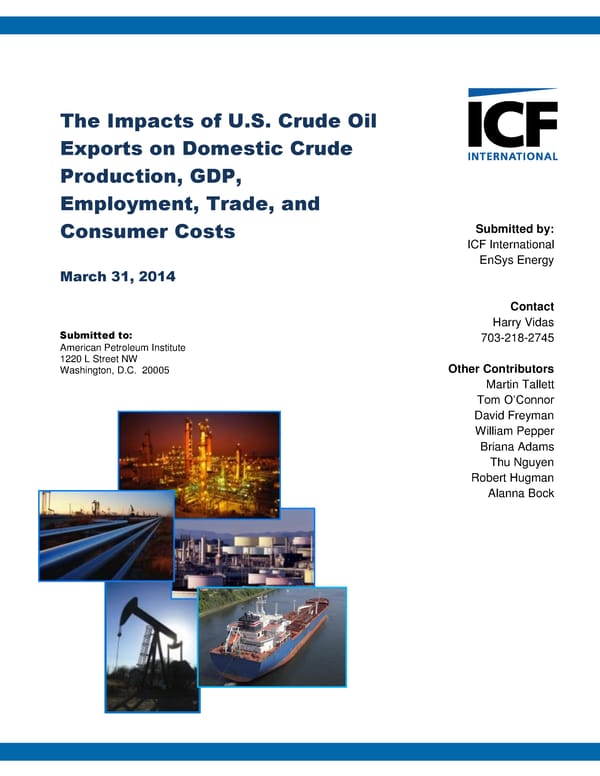
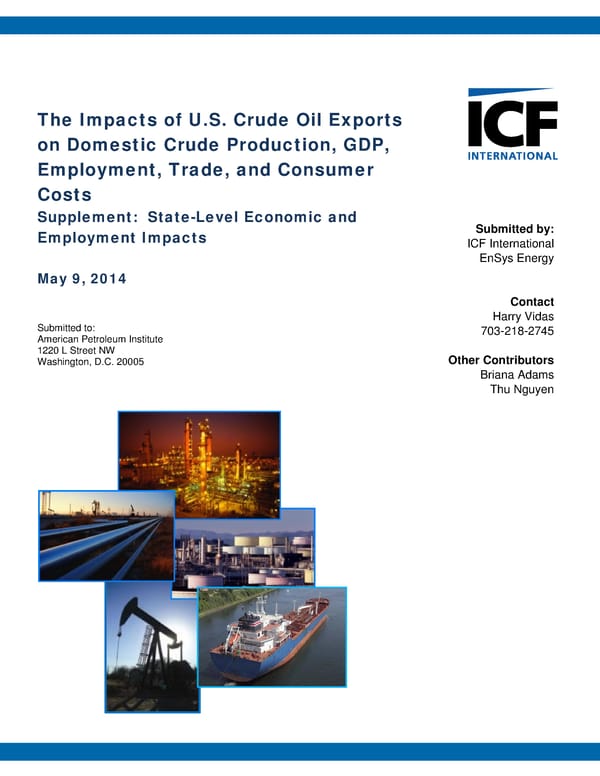
This interim report from ICF International provides an analysis of several key options for ensuring Hawaii's energy security should one or both of its refineries close. These include:
- Developing critical fuel importing infrastructure
- Reducing conventional fuel demand through Hawaii Clean Energy Initiatives such as energy efficiency, distributed generation, and utility-scale renewables
- Expanding the use of liquefied natural gas (LNG)
- Reducing fossil fuel use in the transportation sector
ICF worked closely with the Hawaii Refinery Task Force (HRTF) to assess challenges facing the state's two oil refineries and to identify options for reducing the risk of supply and price disruptions. ICF's final report will expand on this analysis and begin to map out a range of emerging issues the state faces as it transitions away from fossil fuels toward a new energy ecosystem focused on renewables, bioenergy, and a connected inter-island power grid.
Hawaii is highly dependent on fossil fuel imports, both for transportation and for power generation. HRTF was establisheded to assess the impact of changes in the state's refinery capacity and to provide advice and recommendations for ensuring long-term energy security. The task force includes CEOs of local oil companies, refinery managers, senior executives of power utilities and Hawaii Gas, state officials, public utility commission members, environmental organizations, and other public interest groups.
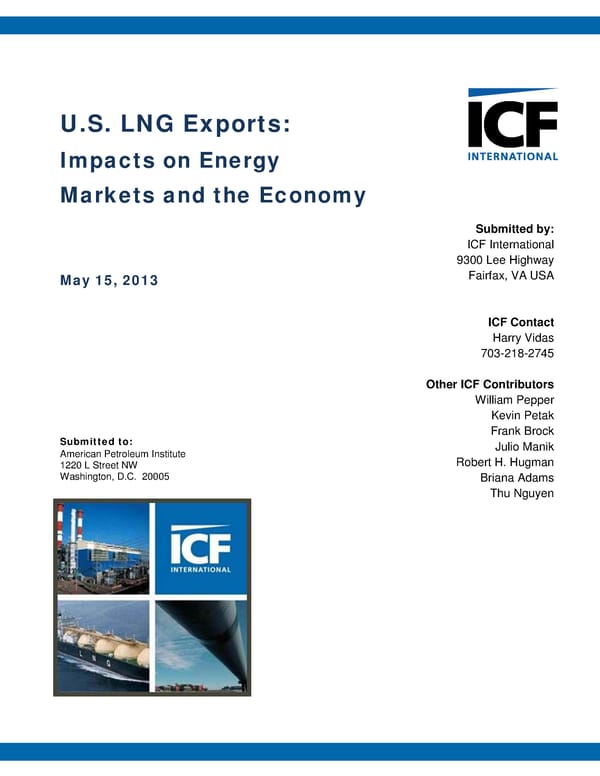
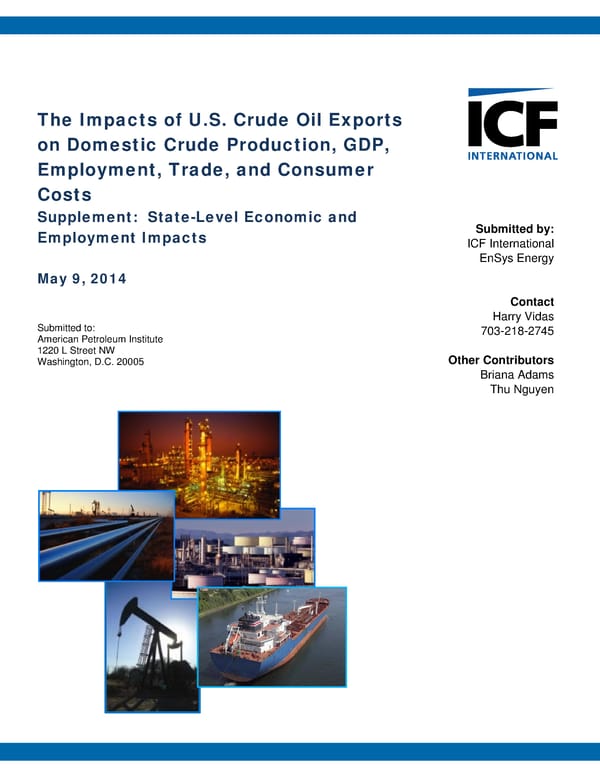
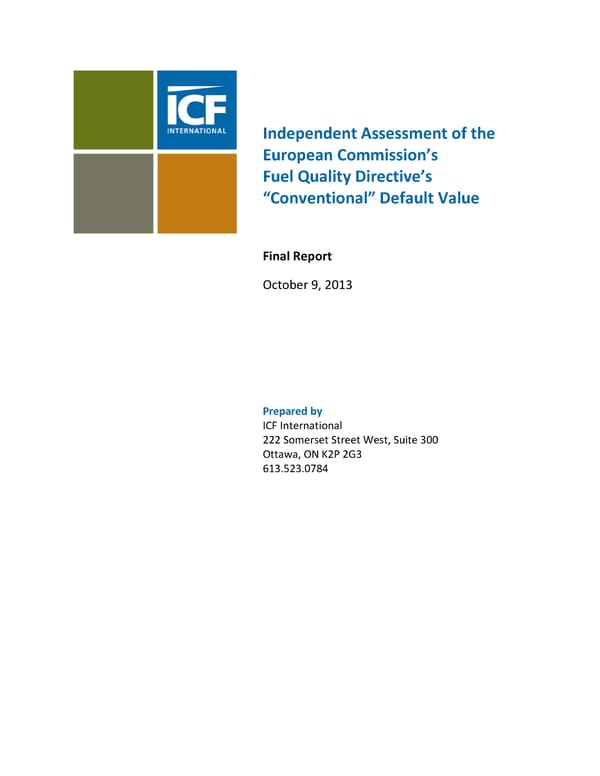
The federal government used a report it commissioned and released today as an opportunity for more finger-wagging about the European Union's plan to calculate the greenhouse gas value of conventional oil in its fuel quality directive.
Ottawa, once again, said the directive will discriminate against Canadian-produced bitumen and argued in the report that the EU's methodology for calculating the greenhouse gases of liquid oil from underground reservoirs is flawed. But the report adds a level of detail to Ottawa's argument that, so far, has been lacking.
"Canada supports the EU Commission's objective of reducing greenhouse gas emissions for transportation fuels but believes it must be based on science and facts," said Natural Resources Minister Joe Oliver.
The basic argument the report made is that different countries release different amounts of greenhouse gases in the process of extracting conventional oil. By assigning one value for all conventional oil, the EU may fail to achieve its stated goal of reducing climate-changing emissions because it doesn't take into account those differences. The report suggests that coming up with different values based on where the oil comes from would be a more accurate way of calculating greenhouse gas values.
"Canada is prepared to contribute to the European Union's emissions targets as a constructive, reliable partner on energy and the environment. We hope the European Union will consider this report's findings as a basis for changes to make the fuel quality directive sound, fair and effective," said Natural Resource Minister Joe Oliver.
Ottawa hired ICF International to research and write the report. ICF also acted as an expert consultant to the EU on the implementation of the fuel quality directive.
How the fuel quality directive works
The directive assigns values to three different types of oil:
- Conventional crude oil.
- Natural bitumen [oilsands oil].
- Oil shale.
The values assigned to each will help EU member states calculate the amount of greenhouse gases they release based on the type of oil they use for transportation. The EU's goal is to reduce greenhouse gas emissions from fuel by six per cent by 2020, compared to 2010 levels.
Canada has been engaged in a serious lobbying effort to have the fuel quality directive either changed or thrown out altogether for nearly two years. The government has also threatened to take the EU to the World Trade Organization if the directive is passed in its current form.
This report examines the various European studies that went into determining he EU's conventional oil value. It compares those studies to other sources of information on conventional oil extraction and its accompanying greenhouse gas emissions. It also looks at greenhouse gas pollution during the various stages that oil goes through to get from the ground to the tank of your car. Finally, it breaks it all down by country.
Ottawa's report is strictly devoted to the fuel quality directive conventional oil value. It does not take issue with the values assigned to natural bitumen or oilsands oil.
Coincidentally, the EU plans to introduce a resolution at the UN Climate Change Conference in Warsaw, Poland, that is going on this week. It states that "the EU could fulfil its vital role in reducing emissions through policies to stop the development of highly greenhouse-gas-intensive unconventional fossil fuels such as tar sands."

WASHINGTON - The oil industry's leading trade group on Monday cast exports of U.S. crude as an economic win for consumers, fighting against criticism that selling the fossil fuel overseas would mean higher prices at home.
The American Petroleum Institute commissioned a study by ICF International and EnSys Energy predicting lower gasoline prices, domestic job growth and other economic benefits if the United States lifts its 39-year-old ban on exporting U.S. crude.
"Consumers are among the first to benefit from free trade, and crude oil is no exception," said API Vice President Kyle Isakower told reporters in a conference call Monday. "Gasoline costs are tied to a global market, and this study shows that additional exports could help increase supplies, put downward pressure on the prices at the pump and bring more jobs to America."
The new study finds that oil exports would reach 2 million barrels per day by 2017 - nearly a quarter of current production - if the trade restrictions were lifted.
The big beneficiaries would be domestic oil producers, who would see U.S. crude prices climb closer to global benchmark, Brent crude.
The study determined that, if crude oil exports were allowed, gasoline prices in the United States would cost 1.4 to 2.3 cents less per gallon between 2015 and 2035, measured in 2011 dollars. Lower overall costs for gasoline, heating oil and diesel could yield an extra $5.8 billion in annual consumer savings, ICF International and EnSys Energy found.
Energy chief: Industry arguments for exporting US oil are unconvincingCritics of easing the export ban, including Sen. Ed Markey, D-Mass., have argued that by sending domestic oil prices higher, gasoline costs would inevitably climb.
API's Isakower said the ICF report was "the most detailed analysis available" on the wide-ranging economic effects of potential crude exports, though at least three other studies are currently in the works, including one from the U.S. Energy Information Administration.
But the margins for domestic refiners would be squeezed if the export ban were lifted, because they would pay more for crude oil even as the price of the resulting gasoline dips slightly, ICF said.
If exports were allowed, "the increase in domestic crude prices is much larger than the reduction in world crude oil prices, and so the average cost of crude to U.S. refineries goes up more than do refined product prices," the study said. "This is the major reason why refinery margins decline."
Related story: Want to hurt Russia? Oil exec says export crudeICF's discussion of how oil exports would shake up U.S. refining puts new numbers behind the sector's apprehension on the issue. Under the current dynamic, refiners are able to freely export gasoline, diesel and other petroleum products, even though the U.S. largely blocks exports of raw, unprocessed crude. The scenario ensures they have been exporting record amounts of the refined products and enjoying relatively high margins, as domestic oil production surges.
"The lower prices for U.S. oil, a result of surging production, improve U.S. refinery margins but do not reduce gasoline or diesel prices," the study said, because refiners "have the ability to export these products at global market prices."
With the prospect of oil exports threatening that dynamic, some small, independent refiners have formed a coalition to fight changes to the 39-year-old trade restrictions.
Read more: US oil glut stirs up political dilemmaOil industry leaders say exports also are needed to help resolve a mismatch between domestic production of light, sweet crude, and U.S. refineries optimized for processing heavier varieties.
"Often, it makes sense to export a surplus of expensive, light oil from one region and import cheaper, heavy oil in another, rather than ship more expensive oil cross-country," Isakower said. "This is especially true in the absence of sufficient infrastructure to efficiently transport crude to the refineries that could use it. But export restrictions effectively insulate consumers from the positive benefits of efficient markets."
The report also predicted that expanding crude exports would:
- spur as much as $70.2 billion in additional investment in U.S. oil exploration, development and production between 2015 and 2020.
- put an extra 110,000 to 500,000 barrels online every day in 2020.
- boost U.S. refinery throughput by 100,000 barrels per day from 2015 to 2035, by ending refinery process bottlenecks caused by mismatched crudes.
- support 300,000 new jobs across the economy in 2020.
